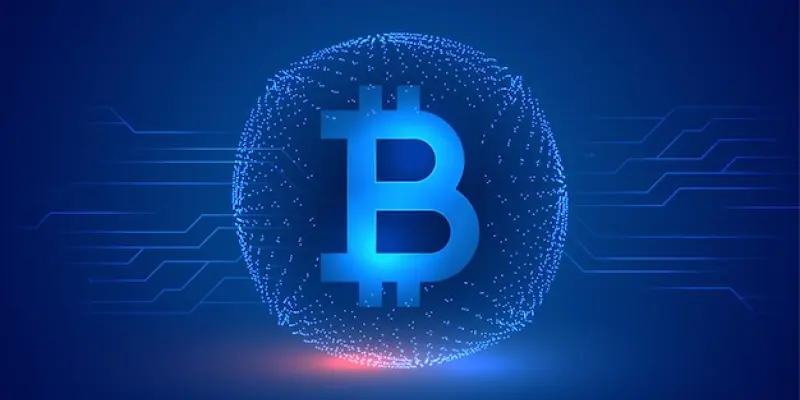Originally designed to thrive in a hostile environment resistant to political and governmental antagonism, Bitcoin’s core value proposition was its resilience, allowing for a robust foundation against well-equipped adversaries. However, recent developments indicate a significant shift within the Bitcoin ecosystem, highlighting a fundamental move away from its core ethos. The community’s increased emphasis on short-term financial gains, often enabled through political favor and selective regulatory benefits, has raised concerns about its long-term soundness. This shift away from the resilience that gives Bitcoin its intrinsic value may have profound implications for the cryptocurrency’s future.
There has been a noticeable move towards celebrating possible support from political figures like President Trump, diverting attention from pressing issues within the Bitcoin ecosystem. Critical challenges such as mining centralization, scalability, and privacy concerns have taken a backseat to short-term policy wins and financial gains. The faith in Bitcoin’s foundational premise of operating against adversarial conditions seems to have dissipated. This trend potentially undermines the very aspects that made Bitcoin revolutionary, substituting its robust, censorship-resistant system with a structure vulnerable to the same political and regulatory influences it was designed to resist.
Mining Centralization and Scalability Concerns
The issue of mining centralization presents a critical threat to Bitcoin’s openness and censorship resistance. As the mining process becomes more centralized, the system grows increasingly susceptible to regulatory attacks, which could hinder users’ ability to operate without fear of censorship. This centralization undermines one of Bitcoin’s core principles: decentralization. The concentration of mining power in the hands of a few could lead to a scenario where regulatory bodies exert undue influence over the network, compromising its integrity and resilience. Addressing this centralization is crucial to maintaining the system’s foundational values.
Scalability is another significant issue that questions Bitcoin’s capacity to support a substantial number of self-custodial users. For Bitcoin to be a viable tool for protest and governmental dissent, it must be able to handle a large volume of transactions efficiently. However, the current focus on short-term gains has diverted attention from this essential challenge. Without scalable solutions, Bitcoin risks becoming a niche asset rather than a widespread medium of exchange. Solving scalability issues is vital for ensuring that Bitcoin remains a robust tool capable of serving a global user base without compromising its core values.
Privacy Issues and Regulatory Scrutiny
Bitcoin faces serious privacy issues that expose users to regulatory scrutiny, potentially leading to self-censorship. As regulatory agencies worldwide tighten their grip on cryptocurrency transactions, the lack of privacy features in Bitcoin makes users vulnerable to surveillance and control. This exposure could deter individuals from using Bitcoin for fear of repercussions, thus stifling its adoption as a censorship-resistant currency. The original vision of Bitcoin included protection against such scrutiny, ensuring that users could transact freely without the prying eyes of governments and regulatory bodies.
Instead of focusing on enhancing privacy features to preserve Bitcoin’s value and resilience, the current trend within the ecosystem prioritizes securing short-term policy wins and financial gains. As a result, the community loses sight of the foundational principles that once made Bitcoin an attractive alternative to traditional financial systems. Strengthening privacy measures is essential for maintaining the trust of users who seek a decentralized and secure way to transact. Without addressing these privacy concerns, Bitcoin risks fading into irrelevance, unable to fulfill its original promise of financial freedom and anonymity.
The Future of Bitcoin’s Core Values
Originally crafted to thrive in a hostile environment resistant to political interference, Bitcoin’s core value lay in its resilience, providing a strong defense against well-equipped adversaries. However, recent developments suggest a notable shift within the Bitcoin community, indicating a departure from its foundational principles. This increasing focus on short-term financial gains, often secured through political favor and selective regulatory benefits, raises concerns about Bitcoin’s long-term viability. This drift from the resilience that once defined Bitcoin suggests significant implications for its future.
A tangible shift towards seeking support from political figures like President Trump has diverted attention from urgent issues within the Bitcoin ecosystem. Critical challenges such as mining centralization, scalability, and privacy have been overshadowed by the pursuit of short-term policy wins and financial gains. The trust in Bitcoin’s fundamental premise of operating under adversarial conditions appears to be waning. This trend potentially undermines the very qualities that made Bitcoin revolutionary, replacing its robust, censorship-resistant system with one susceptible to the same political and regulatory influences it was intended to resist.

